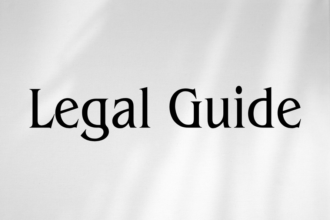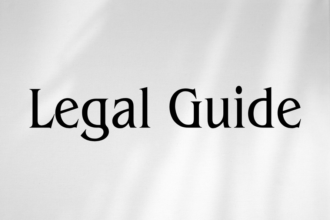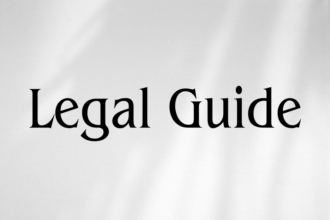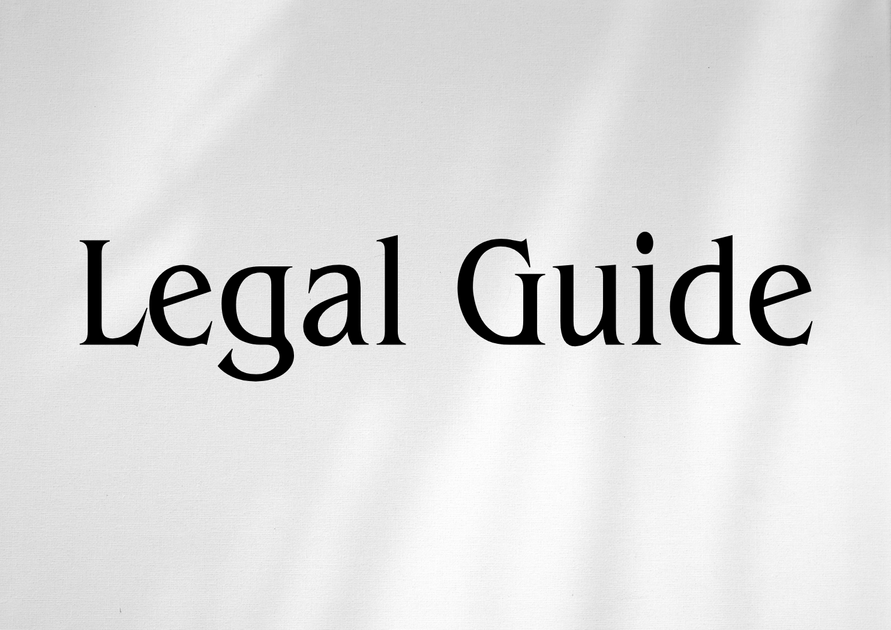Introduction: The Strategic Role of Expert Witnesses in UAE Arbitration
In the evolving landscape of the United Arab Emirates’ legal framework, arbitration has emerged as the preferred dispute resolution mechanism for both domestic and international commercial entities. With the UAE’s strong commitment to establishing itself as a regional arbitration hub—evidenced by the Federal Law No. 6 of 2018 on Arbitration and subsequent updates—understanding the formal processes surrounding expert witnesses is critical. As the UAE continues to harmonize its arbitral procedures with best international practices (see Federal Law No. 6 of 2018, UAE Government Legal Portal), the role of expert testimony has become increasingly integral in resolving complex disputes involving technical, financial, or specialized issues.
For businesses, executives, HR managers, and legal practitioners operating in or with the UAE, the admissibility and procedural conduct of expert witnesses can determine the strength of an arbitral claim or defense. With recent updates for 2025, including new guidelines from the Ministry of Justice and revised procedural rules at key arbitration centers, a robust understanding of how to leverage expert evidence—and avoid procedural pitfalls—has never been more important. This article provides a consultancy-grade, comprehensive analysis of the applicable legal framework, current best practices, and strategic considerations in presenting expert evidence in UAE arbitration.
Table of Contents
- Legal Framework Governing Expert Witnesses in UAE Arbitration
- Procedures for Appointment and Qualifications of Expert Witnesses
- Admissibility Standards and Evidentiary Value of Expert Testimony
- Comparative Analysis: Past and Present Regulations
- Practical Strategies for Engaging Expert Witnesses
- Case Studies and Illustrative Scenarios
- Risks, Compliance Challenges, and Mitigation Strategies
- Conclusion: Best Practices and Forward Perspective
Legal Framework Governing Expert Witnesses in UAE Arbitration
Key Laws and Decrees: Foundation and Evolution
The admissibility and use of expert witnesses in UAE arbitral proceedings are principally governed by the following statutes and guidelines:
- Federal Law No. 6 of 2018 on Arbitration (the UAE Arbitration Law)
- UAE Civil Procedures Law (as amended)
- Cabinet Resolution No. 57 of 2018 on the Executive Regulations of Civil Procedure Law
- Procedural guidelines issued by arbitral institutions such as DIAC, ADCCAC, and DIFC-LCIA
- Recent Ministerial Guidelines (2024/2025 updates from the UAE Ministry of Justice)
Article 33 of the UAE Arbitration Law codifies the tribunal’s authority to appoint experts either on its own initiative or at the request of a party, thereby aligning domestic arbitration processes with international standards such as the UNCITRAL Model Law. The ability to present expert evidence is further supported by the executive regulations and detailed in institutional rules.
The Importance of Expert Testimony
Expert witnesses are critical in arbitrations involving technical, scientific, or highly specialized matters (e.g., construction, finance, intellectual property). Their opinions aid arbitrators—who may lack specialized expertise—in assessing complex evidence and arriving at well-informed awards. UAE courts and arbitral panels frequently rely on experts to elucidate matters ranging from contract quantum to engineering defects.
Procedures for Appointment and Qualifications of Expert Witnesses
Who Can Act as an Expert?
Under the regulatory framework, an expert must possess demonstrable credentials, experience, and neutrality:
- Independence & Impartiality: Articles 23–26, Federal Law No. 6 of 2018, require that experts be independent from the parties and the tribunal.
- Technical Qualification: Relevant educational, academic, or professional qualifications in the subject area are essential, often supported by a strong track record in similar expert engagements.
- Confidentiality Undertakings: Experts must undertake not to disclose sensitive information encountered during proceedings.
| Aspect | Pre-2018 (Old Law) | Post-2018 / 2025 Updates |
|---|---|---|
| Independence | Not expressly detailed; practice-based | Codified in Article 23–26, Arbitration Law; stricter scrutiny |
| Disclosure of Conflicts | General requirement | Obligation to disclose potential or perceived conflicts at appointment |
| Professional Qualification | Practice-based, tribunal discretion | Explicitly required by arbitral institutions and Decree-level guidelines |
| Adherence to Institutional Codes | Not specified | Mandated by DIAC/ADCCAC and new Ministerial Guidelines |
Process of Appointing Experts: Party-Appointed vs. Tribunal-Appointed
Arbitral parties may:
- Directly appoint an expert witness, subject to tribunal approval and procedural rules.
- Request the tribunal to appoint an independent expert (often in highly technical disputes or if impartiality is disputed).
Best Practice for 2025: Recent guidelines recommend early identification of expert needs, disclosure of curriculum vitae, and pre-appointment vetting for independence and qualifications. Tribunals increasingly favor pre-appointment conferences to streamline expert issues and avoid later procedural objections.
Admissibility Standards and Evidentiary Value of Expert Testimony
Legal Thresholds for Admissibility
According to Article 35 of the UAE Arbitration Law and supplementary Ministerial Guidelines, for expert testimony to be admissible:
- The expert opinion must be relevant to the facts in dispute.
- The party or tribunal seeking the opinion should establish that the expertise is necessary, not just preferable.
- The expert report must comply with procedural requirements (e.g. be delivered within timelines, include a statement of independence).
Admissibility is at the discretion of the arbitral tribunal, but parties may challenge expert evidence on grounds of irrelevance, bias, or procedural defects. The tribunal’s decision on admissibility may be subject to scrutiny at any post-award stage if the matter is elevated to the UAE courts (particularly under Article 53, Federal Law No. 6 of 2018 on grounds for annulment).
| Criterion | Compliance Indicator |
|---|---|
| Relevance | Clear demonstration of linkage to disputed facts/issues |
| Independence | Signed declaration with supporting documentation |
| Expert Credentials | CV, track record, professional licenses/certifications |
| Procedural Compliance | Timeliness, format adherence, tribunal notice |
| Right of Cross-Examination | Expert available for hearing and cross-examination |
The Tribunal’s Approach to Conflicting Expert Testimony
Where parties produce conflicting expert reports, tribunals may:
- Direct the experts to meet and identify points of agreement/disagreement (a process championed by the 2025 institutional rules).
- Appoint a third, independent expert for clarification.
- Weigh the quality, independence, and factual basis of the opinions to determine evidentiary value.
This approach ensures robust, reasoned arbitral awards and reduces the risk of successful post-award challenges.
Comparative Analysis: Past and Present Regulations
What Has Changed in UAE Law?
Recent legal reforms have introduced more detailed provisions regarding the management and admissibility of expert evidence, improving transparency and efficiency in arbitral proceedings. The following table summarizes the main differences:
| Issue | Pre-2018 Practice | 2025 and Beyond |
|---|---|---|
| Expert Appointment | Ad hoc, party autonomy/practice | Clear procedural framework in Arbitration Law, institutional rules |
| Institutional Vetting | Rare, not standardized | Institutions (e.g., DIAC) maintain vetting lists and processes |
| Disclosure of Reports | Differed by institution, not always mandatory | Timely disclosure and right to comment/cross-examine mandated |
| Challenges to Experts | Case-by-case, less formalized | Dedicated procedures for raising challenges or objections |
| Cross-Examination | Limited, sometimes omitted | Right to cross-examination under institutional and Arbitration Law provisions |
Emerging Institutional Rules: DIAC and ADCCAC Updates
Both the Dubai International Arbitration Centre (DIAC) and the Abu Dhabi Commercial Conciliation and Arbitration Centre (ADCCAC) have updated their procedural rules to clarify:
- Expert appointment schedules and vetting
- Templates for expert terms of reference
- Mandatory timelines for report submission and party comments
- Expert meetings/joint statements for narrowing issues
These reforms address previous uncertainties and align UAE practice with leading arbitral centers worldwide.
Practical Strategies for Engaging Expert Witnesses
How to Maximize the Impact and Admissibility of Expert Testimony
- Identify Early: Determine the necessity for expert evidence at the outset of the dispute, not mid-way.
- Select Carefully: Vetting candidate experts for both technical and jurisdictional credibility is critical under 2025 rules. Consider not just qualifications but prior experience before UAE tribunals.
- Brief Thoroughly: Ensure the expert is fully briefed on applicable UAE law, the arbitration agreement, and procedural expectations.
- Document Rigorously: Assist experts in providing structured, clear, and well-referenced reports with robust statements of independence.
- Prepare for Scrutiny: Anticipate challenges by thoroughly documenting selection and engagement processes, and preparing witnesses for cross-examination as per institutional and Ministerial Guidelines.
Visual Suggestion: Place a process flow diagram depicting the end-to-end expert appointment and evidence process—beginning with identification, through appointment, report filing, challenge, and tribunal deliberation—to improve user understanding.
Case Studies and Illustrative Scenarios
Hypothetical Example 1: Construction Dispute and Tribunal-Appointed Expert
Background: An international contractor and a Dubai developer enter arbitration over alleged construction delays and defective works. The issues are highly technical (involving soil stability and architectural standards).
Strategy: Both parties produce their own expert reports, reaching divergent conclusions on causation and damages. The tribunal is unconvinced and exercises its power (Article 33, Federal Law No. 6 of 2018) to appoint an independent structural engineering expert.
Outcome: The independent expert clarifies key technical questions, and both party-appointed experts are required to jointly meet and submit a list of agreed and contested matters. This approach leads to a focused evidentiary hearing and limits grounds for challenge at the enforcement stage.
Hypothetical Example 2: Finance Arbitration, Challenge to Admissibility
Background: A local technology firm seeks damages from a supplier for defective software. Both sides present financial loss experts; however, the respondent’s expert is successfully challenged for non-disclosure of a prior consultancy with the respondent’s majority shareholder.
Discussion: The tribunal, following the Cabinet Resolution No. 57 of 2018 and new Ministerial Guidelines, excludes the respondent’s expert report as inadmissible due to compromised independence, but allows respondent a further (time-limited) opportunity to appoint a new, conflict-free expert—demonstrating procedural fairness.
Risks, Compliance Challenges, and Mitigation Strategies
Risks of Non-Compliance with New Procedures
Failure to adhere to updated expert witness requirements can have severe consequences, particularly under the current legal regime. Risks include:
- Procedural Objections: Parties may delay proceedings or derail cases by raising procedural irregularities.
- Exclusion of Expert Evidence: Important technical testimony may be set aside, weakening a party’s position.
- Grounds for Annulment: Under Article 53, failure to comply with appointment and independence criteria may render an award unenforceable in UAE courts.
- Reputational Damage: Engagement of biased or unqualified experts can undermine a party’s case—and the credibility of its legal team.
| Risk Identified | Mitigation Strategy |
|---|---|
| Late Appointment | Identify and begin vetting experts at dispute outset |
| Conflict of Interest | Mandatory conflict checks and full disclosure procedures |
| Poor Documentation | Comprehensive engagement letters, clear terms of reference |
| Procedural Non-Compliance | Continuous alignment with current institutional/Ministerial guidelines |
| Cross-Examination Failures | Engage experts with prior arbitral witness training |
Conclusion: Best Practices and Forward Perspective for UAE Arbitration
The framework for expert witnesses in UAE arbitration has evolved into one of procedural clarity and international alignment. With the UAE’s 2025 legal updates—supported by clear provisions in Federal Law No. 6 of 2018, Ministerial Circulars, and institutional rules—parties must approach expert evidence strategy with diligence, transparency, and technical rigor.
Key Takeaways for Businesses and Legal Teams:
- Start early: Identify areas likely to require technical evidence and plan expert appointments accordingly.
- Vet thoroughly: Challenge experts for independence and qualification from the outset—not after issues arise.
- Comply meticulously: Align all expert-related processes with current arbitration law and guidelines to safeguard the enforceability of awards.
- Document every step: Maintain clear engagement documentation and be prepared for scrutiny at all procedural junctures.
Looking Ahead: The trajectory of UAE arbitration is towards increased professionalism and predictability. Proactive compliance with the new standards for expert evidence ensures not only procedural fairness but also secures strategic advantage in complex arbitral disputes. We recommend that businesses and legal advisors routinely review and update internal protocols to reflect the latest legal and institutional changes. Engaging with a qualified UAE legal consultant can provide the expertise needed to navigate these evolving requirements with confidence.
Suggested Visual: Compliance checklist infographic summarizing best practices for expert appointment and admissibility under UAE law 2025 updates.




